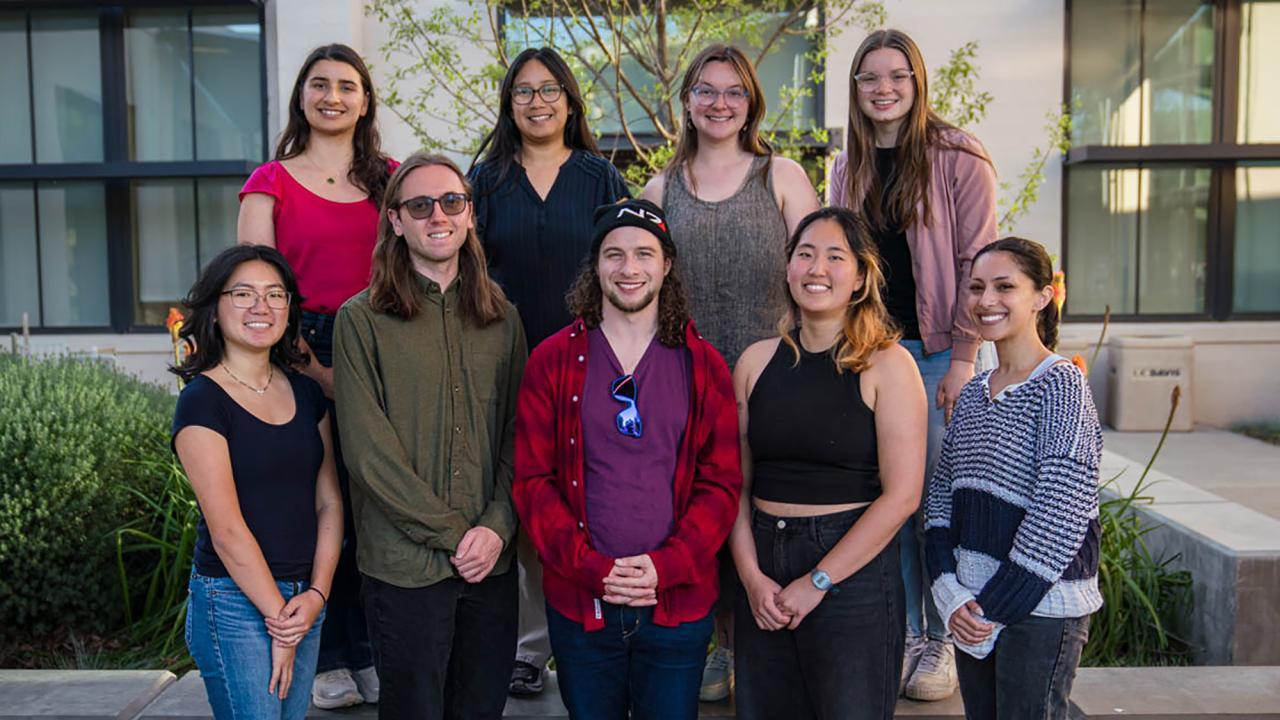
UC Davis DEIJ Leader Fellowships
Diverse projects drive equity and inclusion in academic pursuits
The UC Davis College of Biological Sciences champions Diversity, Equity, Inclusion, and Justice (DEIJ) through the Graduate Student DEIJ Leader Fellowship program. Now in its second year, the program empowers enterprising graduate students committed to enhancing DEIJ within the CBS community by supporting projects aimed at fostering a more inclusive academic environment.
Among this year’s distinguished recipients of the DEIJ Leader Fellowship are CMSI affiliates Tracie Hayes and Darien Satterfield.
Learn more at biology.ucdavis.edu

Tracie Hayes
Population Biology
Project Title: Climate Survey for the Population Biology Graduate Group
I am a fifth-year graduate student studying the ecology of organisms that rely on ephemeral resources, and I do most of my work with burying beetles along the California coast. I am interested in DEI efforts because I believe increasing and retaining historically marginalized groups in the life sciences is crucial to the success and growth of evolution and ecology as disciplines. For my project, I am developing and circulating an anonymous climate survey to my graduate group to identify issues we want to address in our community, and identify what is working within the community. I love my graduate group and I want to continue to improve the culture concerning mentor-mentee relationships, student belonging, DEIJ initiatives and graduate funding. With the results of this climate survey and in collaboration with our Student Diversity Committee, I hope to prioritize student needs in conversations and make plans to address those that are not being met.

Darien Satterfield
Population Biology
Project Title: Planning Ethical, Inclusive, and Culturally Aware Field Work
I am a fifth-year Ph.D. candidate studying the functional morphology of coral reef fish. As a fellow, my goal is to broaden the available training on how to lead field work that is inclusive and ethical by outlining necessary steps from the project design stages, all the way through visiting a remote area and then completing the project. Too often research happens exclusively within the bubble of academia, which can disadvantage underrepresented groups resulting in a lack of diverse perspectives, backgrounds, and skill sets. When designing field work, researchers have a chance to contribute to the dismantling of the barriers to science many from underserved groups face. By creating safe and welcoming field work policies, extending research opportunities to a broader network of scientists and community members, and listening to the traditional knowledge and values that surround our study system, our science becomes more informed, efficient, and impactful. The workshop I am creating will include lessons learned from those who have led successful field work collaborations and a blueprint for planning field work that is inclusive.
